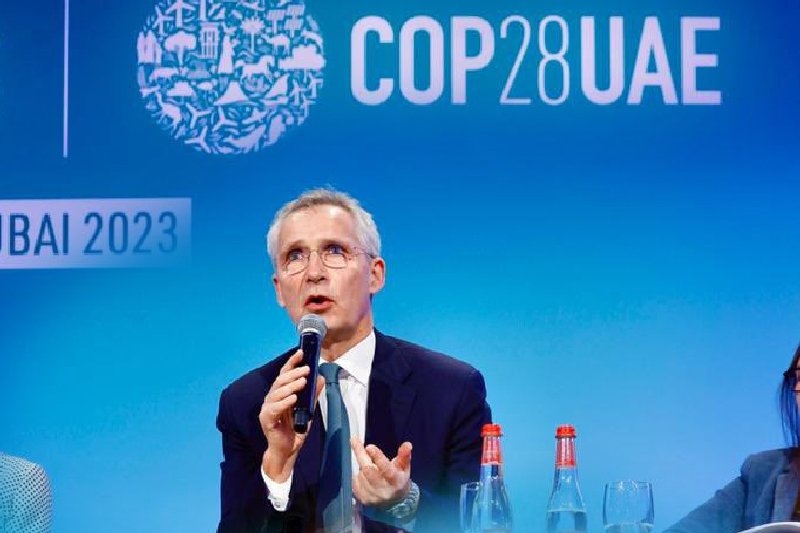Jens Stoltenberg, the NATO secretary general, is attending the UN-led COP28 Summit in the UAE, which seeks to engage participants on talks to keep the rise in global temperatures to 1.5C above pre-industrial levels, as laid down by the 2015 Paris Agreement.
Although the raging Russian invasion of Ukraine has dominated Stoltenberg’s last years at the NATO helm, the former Prime Minister of Norway reflected on how important the climate emergency has been in shaping the security landscape on his watch.
He called global warming a “crisis multiplier”, according to The National, highlighting the key role the Summit can play in breaking the link between climate change and the global security crisis. He noted that military operations have been absorbing resources needed to save Earth.
NATO Secretary General Highlights Early Successes At COP28
Stoltenberg raised concerns over global warming increasing competition for scarce resources, driving migratory flows and undermining our capability to combat climate change as resources net should have been used for the planet are spent on addressing military needs.
Speaking at the heart of the COP28 Summit, the NATO secretary general underscored the early success the conference achieved on the first day itself as participants reached a landmark loss and damage deal to compensate developing nations for the impacts of climate disasters.
On the second day of the event, at least 134 leaders endorsed a UAE declaration on Sustainable agriculture, resilient food systems and climate action, and a separate $30 billion climate finance pledge was made that aims to find solutions to the world’s funding challenges.
NATO Trying To Adapt Its Military Forces For A Greener Economy
Stoltenberg also talked about distrust between geopolitical blocs undermining cooperation on climate mitigation. “Conflicts make it harder to combat climate change … it undermines the needed trust between nations to build the climate change architecture.”
NATO as a military alliance has its own challenge of reducing its carbon footprint. The secretary general noted that military vehicles do not tend to be environmentally friendly, adding that NATO is working on adapting its military forces for a greener economy.
Read More: ALTÉRRA Takes Lead At COP28 As UAE President Unveils Key Climate Investment Fund
“If you’re forced to choose between a combat-effective battle tank or a green [energy] tank then of course you choose the combat effective one,” he said but stressed that “in the future that will not be an issue – the most combat effective technology will be the green solution.”














